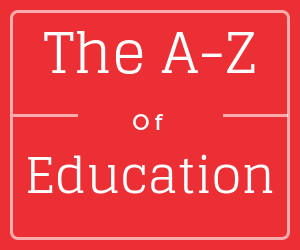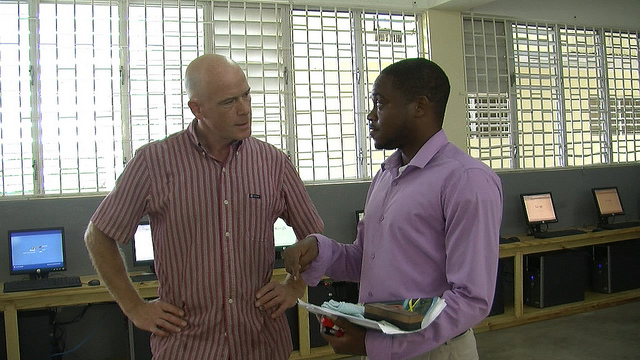5 Ways the Achievement Gap Was Narrowed in 2015

In the United States, there are low levels of achievement among students from low-income backgrounds and students of color. This contrasts fact that students in educationally supportive states and those from advantaged backgrounds easily rival students from across the world. This is referred to as the “achievement gap.” In response to this phenomenon, various organizations have implemented initiatives and programs aimed at closing the gap. Here are five ways that the achievement gap was narrowed during 2015.
D.C. invested $20M in minority male students. D.C. Schools Chancellor Kaya Henderson announced a plan to invest $20 million to support programs for Washington, D.C.’s men of color. This includes opening an all-boys college preparatory high school in 2017 under the “Empowering Males of Color” initiative.
The funding for the support programs will come from private and public sources. The D.C. Public Education Fund is working to raise money to support these initiatives outside the operating budget.
Henderson’s decision to invest seriously in the specific needs of minority boys has everything to do with “mathematics,” she says. Black and Latino boys make up 43 percent of the students enrolled in D.C.’s public schools. The graduation rates, reading and math scores, and attendance of minority boys are all lagging in the District. By fourth grade, nearly half of the city’s black and Latino male students are reading below grade level.
In the district, 48 percent of black male students and 57 percent of Hispanic male students graduate in four years, compared with 66 percent of their classmates. Only about a third of black male students are proficient in reading and math, compared with nearly 66 percent of students who are not black or Latino males, according to D.C. CAS scores.
The push is part of a citywide effort led by Mayor Muriel E. Bowser, who is working to improve equity and increase opportunities for black and Latino males. The efforts also align with President Obama’s work to help keep male minority students in school and out of prison.
I’m ecstatic to see the effort and money dedicated to increasing the success of minority male students in the District. These young men deserve the investment that Washington D.C. is making in them, and I predict we will see big improvements in graduation rates and reading and math scores moving forward.
Maryland graduation rates hit record high. More than 86 percent of students in Maryland are earning diplomas within four years, a record-high graduation rate for the state, according to data released this year.
Maryland state officials celebrated the achievement, noting that the rate has risen more than four percentage points since 2010. At that time, fewer than 82 percent of high school students graduated in four years.
“We are so excited,” said Maryland’s State Superintendent of Schools Lillian M. Lowery, sharing that, as graduation rates improved, dropout rates fell. “We have to give all of the credit to the creative work that’s going on in our districts and our schools.”
Lowery also shared that Maryland’s 24 school districts now target at-risk students and build individualized learning plans to meet each student’s needs.
State data tells us that the dropout rate in Maryland declined from 11.9 percent in 2010 to 8.4 percent in 2014.
Despite the gains, statewide numbers show that an achievement gap still exists, with lower graduation rates for Hispanic and African-American students. However, the gap did narrow between 2011 and 2014.
Maryland’s graduation rate for African-American students is up more than four percentage points since 2010, to nearly 80.5 percent statewide. The rate for Hispanic students also rose nearly six percentage points during the same period, up to 77.5 percent.
There has been a lot to celebrate in the state of Maryland; the numbers show change is happening in the state, and for the better. I believe a big reason we are seeing these changes is thanks to the individualized plans that Maryland now builds for at-risk students. I hope we continue to see higher education rates, lower dropout rates and a narrowing education gap.
Delaware students rallied for more African-American teachers. In 2015, local students in Sussex County, Delaware, took a stand to rally for more African-American teachers and discuss issues they have faced at school, as reported in the News Journal.
The forum hosted by the local League of Women Voters to mark Black History Month included adult speakers, but three high school students generated the biggest uproar.
Many students only have one or two African-American teachers throughout their entire K-12 experience and feel that they could better identify with teachers who look more like them. One example given in the News Journal is Sussex Tech, in which is 90.3 percent of teachers are white, 7.5 percent of teachers are black, and only one teacher is Hispanic. In the school, 66.5 percent of students are white, 17.9 percent are black, and 12.4 percent are Hispanic. The percentages do not add up, and it is clear that students are not seeing an accurate representation of their ethnic population in their teachers.
I agree with the students of Sussex County: we need more African-American teachers in our schools. Teachers in our country are simply not as diverse as its students. Students will perform better when they can identify with and relate to their teachers, and I believe we could narrow and even close achievement gaps by recruiting more black educators.
In addition, I think increasing the number of teachers of color can also help students who are not of color. Putting black teachers in front of non-black children could prevent stereotyping and promote acceptance of diversity and equity.
Michigan non-profit succeeding in narrowing the achievement gap. Educators in Ann Arbor, Michigan, are striving to close the achievement gap between black and white students and poor and middle-class students. However, the school district needs some help, and Community Action Network has stepped up to the plate.
Community Action Network, or CAN, is a nonprofit organization that offers stable housing for adults and educational programs for children who live in low-income Ann Arbor neighborhoods. Its programs give students the same support middle-class families can provide their children. Families in poverty may lack Internet access or an adult to help them graduate, for example, and CAN steps in to bridge this gap.
Around one-quarter of Ann Arbor Public Schools students come from a home adversely affected by poverty. And for decades, Michigan’s standardized test, such as the MEAP and the ACT college entrance exam, have shown an achievement gap between black and white students and those from low- versus middle-class homes. However, the gap is narrowing.
The Ann Arbor News reported that, in MEAP math and reading exams, black students are achieving proficiency rates that are 23 to 41 percentage points lower than their white peers. Five years ago, the gap was 33 to 44 percentage points. CAN is an example of an outside service organization that has stepped up to improve educational outcomes for K-12 students and is succeeding.
This gap is still too wide, of course, but positive change does not come overnight. Gradually closing this achievement gap is a step in the right direction. We also need to see changes in parenting practices and better support for early intervention and education. It really does “take a village,” and I hope the success in Ann Arbor can be duplicated in other school districts across the country.
Call Me Mister encourages male minority teachers. Teachers are a rare breed. They are grossly underpaid and severely overworked. To make matters worse, the type of diversity we really need to see in classrooms doesn’t exist. It’s also why teacher recruitment is a fluid process.
The Call Me MISTER Program first instituted in South Carolina has made its way south and onto the Edward Waters College campus. Starting in 2000 at Clemson University, the Call Me MISTER Program intended to “increase the pool of available teachers from a broader, more-diverse background particular among the State’s lowest performing elementary schools.”
In essence, the program is needed to tend to the low number of minority male teachers. According to the Department of Education, just two percent of teachers nationwide are black.
This program aims to increase that number by offering scholarships to qualified applicants.
To apply to the program, applicants must have a high school diploma with a 2.5 GPA or better, letters of recommendations, an ACT score of 21 or higher, an SAT score of 1000 or better, and two essays. One must detail why the applicant is interested in the program, and the other’s topic is “Why I Want To Teach.”
Having more black men in the classroom is great for diversity and will increase numbers tracked by the government. But for many students who need positive reinforcement through sight and will view black men as strong role models, this program certainly is one of the more important ones being offered by our institutions of higher education.
Can you think or any additional noteworthy efforts to close the achievement gap?
Click here to read all our posts concerning the Achievement Gap.





